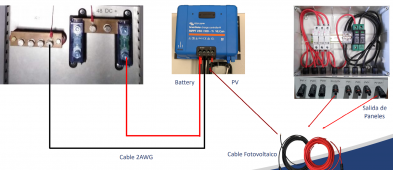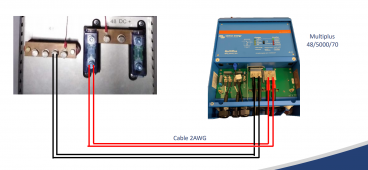AgroVenturesPeru
New Member
- Joined
- Sep 19, 2020
- Messages
- 411
I've got a copper ground rod that's 5/8" thick, and I want to connect all my solar components: panels, cabinet, charge controller, inverter, 4 batteries, etc to this copper ground rod via a common copper cable. The threads on the ground rod's bolt connector measure 1cm in diameter.
What size of cable should I order to connect with the ground rod?
The PVC electrical pipe that will carry this cable is 1 inch thick, and includes one 90 degree bend along its trajectory. I'm only looking for 2 meters of whatever is the correct gauge cable.
What size of cable should I order to connect with the ground rod?
The PVC electrical pipe that will carry this cable is 1 inch thick, and includes one 90 degree bend along its trajectory. I'm only looking for 2 meters of whatever is the correct gauge cable.




